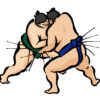What does “sekoi” mean? What in English?せこい?

何あの人せこい。
Nani ano hito sekoi.
そんなセコいことしてないで気前良く行けよ。
Sonna sekoi koto shinaide kimae yoku ike yo.
うわーセコッ!
Uwa- seko!
The word “sekoi(せこい、セコい)" often appears in casual Japanese conversations.
Japanese people don’t feel very good when they are called “sekoi".
Because …
Anyway, let’s take a closer look at “sekoi"
What is the meaning of “sekoi"?
The meaning of “sekoi" is as follows.
Being petty, a cheapskate, being mean, being miserly, small-minded, poor quality, worthless
In the dialect of Tokushima prefecture located in Shikoku, “sekoi" is used to mean “tired", “painful", and “discomfort with a full stomach".
Recently, young people (about elementary and junior high school students) often use “sekoi" to mean such as “not fair", “dodgy", “sly", “cunning" or “crafty".
Origin and spread of “sekoi"
There are various theories about the origin of “sekoi" and how it spread.
The first theory is that the word “seko(せこ)" has already been written in documents of the Kamakura period, the meaning of “an unpleasant thing, and it became an adjective “sekoi".
The second theory was that actors and rakugo(落語) performers during the Meiji era used “sekoi" as a jargon to mean “poor performance." Customers who heard it spread the word, mainly in the Kansai region.
Also, it is said that there is a theory that Kansai entertainers have frequently used the word in many TV programs, which the audience copied and spread throughout Japan.
Thirdly, “sekoi" was used in the sense of “the business is slow" “having small numbers of customers" among stall vendors and entertainers. Some say that customers who heard it imitated it and started using it.
In addition, there is also the word “sekoi(世故い)" which expresses that someone is good at getting through the world. But, then, people started to use the word including the feelings of envy and jealousy. Then, the word came to even include the meaning of “not fair."
In the dialect of Tokushima Prefecture located in Shikoku, the word “seko(迫)” is used to mean “narrow”. Some say that the word has changed to mean such as “cannot make ends meet" or “painful."
Considering the above, the etymology of “sekoi" has various theories. The word is used in a variety of ways in different parts of the country, and it is thought that it has become prevalent in each region.
Recently, young people (about elementary and junior high school students) often use “sekoi" to mean “not fair, sly, cunning".
Examples using “sekoi"
Minna de warikan towa itta kedo, ichien made komakaku keisan suru nante sekoi yatsu da.
みんなで割り勘とは言ったけど、1円まで細かく計算するなんてせこい奴だ。
We agreed to split the bill between us, but he is meticulously calculating up to 1 yen. He must be stingy.
Sekkaku no oiwai no seki nanoni, syokuji ga sekoi.
せっかくのお祝いの席なのに、食事がせこい。
Even though it is a special celebration party, the quality of the meal is not so good.
Jizen ni shuui to shimeshiawasete kara koudou surunante sekoi.
事前に周囲と示し合わせてから行動するなんてせこい。
It is somewhat wimpy for him to arrange beforehand like that.
Kimi no gei wa madamada sekoi naa. Motto ganbaranaito dame dayo.
君の芸はまだまだせこいなあ。もっと頑張らないとダメだよ。
Your performance is still immature. You need more training.
Sonna sekoi kangae wa wasurete motto ookina koto wo shinasai yo.
そんなせこい考えは忘れて、もっと大きなことをしなさいよ。
Forget such a small idea and try something bigger.
Sonna sekoi te wo tsukatte made kachitai no?
そんなせこい手を使ってまで勝ちたいの?
Do you really want to win that way, even using such a sneaky hand?
Nande kurisumasu ibu no syokuji ga famiresu nano? Seko-. Donbiki.
何でクリスマスイブの食事がファミレスなの?セコー。ドン引き。
Why are we having dinner in a Family Restaurant on Christmas Eve? What a disappointment.
(famiresu = a family restaurant, very casual and economical)
A: Ano ikemen kun to wakareta no? Nande?
A: あのイケメンくんと別れたの?何で?
A: Did you break up with that handsome boyfriend? why?
B: Datte hoteru no amenitii wo zenbu mochikaettanda yo. Anna sekoi yatsu muri.
B: だってホテルのアメニティを全部持ち帰ったんだよ。あんなせこい奴無理。
B: Because he took away all the hotel amenities home. Such a miserly person is just impossible.
















